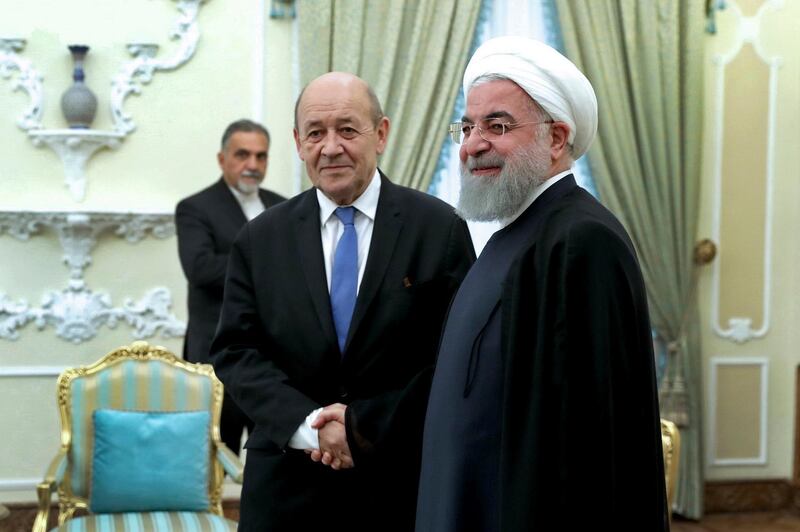As the Iranian regime ramps up efforts to spread its malign influence in this region, failures at the core of the 2015 nuclear deal are being increasingly laid bare. Amid conflicting expectations and discord among its signatories, the agreement looks ineffectual at best and enabling at worst. While European powers remain invested in the deal, US President Donald Trump has expressed a need to fix its "terrible flaws", firing Secretary of State Rex Tillerson, who reportedly backed the accord. Mr Trump will likely discuss the deal this week with Saudi's Crown Prince Mohammed bin Salman, who has spoken out repeatedly about the direct effects of Iranian action, particularly its malign presence in various Arab countries. The deal is increasingly becoming a political football with Britain, France and Germany proposing fresh EU sanctions on Iran, hoping to persuade Mr Trump to preserve it. But the deal is flawed from inception and fresh sanctions are unlikely to generate substantive change in the regime's behaviour.
The crux of the deal hinges on Iran reaffirming that "under no circumstances will it ever seek, develop or acquire nuclear weapons”. However, that is not an indefinite commitment, as the deal has a term limit. Tehran would agree to lower enrichment levels and uranium stockpiles, limit research and development and jettison nuclear-oriented ballistic missiles for a period of time. In return, sanctions would be lifted and tens of billions of dollars of revenue unfrozen. Western nations hoped the agreement would significantly correct Iran’s behaviour and transform a mistrustful relationship. For the Iranians – who have ruled out re-negotiation – the agreement stopped at nuclear armament.
Today the deal's failings are painfully clear. On Friday, the commission overseeing the nuclear accord confirmed that Iran was meeting its obligations. But with an influx of revenue after 2015, the Islamic Revolutionary Guards Corps has broadened its insidious influence. According to US National Security Adviser HR McMaster, Iran has provided more than $16 billion to the Assad regime and its proxies in Syria, Iraq, Lebanon and Yemen since 2012, The National reported. US Defence Secretary James Mattis has accused Tehran of trying to influence elections in Iraq. Iran may be fulfilling the core requirement of the nuclear deal but its conduct has worsened in the intervening years. And while European powers scramble to keep it in place amid US scepticism, Iran's militant actions in the region should not go unhindered.





